Shobha Warrier/Rediff.com in Chennai
Janaki Viswanathan, a journalist turned filmmaker won a National Award in 2002 for her debut film Kutty, on child labour.
She has also made Kanavu Meipada Vendum and Om Obama in Tamil.
Her fourth film, in Hindi, titled Yeh Hai Bakrapur is releasing this Friday, May 9. The film came to national attention because the goat in the film is named Shahrukh!
The film was at Film Bazaar in 2012 as a Work in Progress and was subsequently screened at MAMI in October 2013 and the Goteborg International Film Festival in January 2014.
In this interview, the filmmaker talks about her film
Why did you decide to make a film in Hindi?
Yeh Hai Bakrapur is a socio-political satire, reflecting on a variety of trends in our society.
I thought Hindi was better suited to the backdrop of the film. Also, I wanted a national audience for the film.
Why did you feel you wanted a wider audience?
Yeh Hai Bakrapur reflects humorously on some important socio-political trends about conflict and communal tensions whose importance is even more amplified now in the current election scenario. I thought these were issues of national importance.
'The film is a satirical take on conflict between communities'
Image: Janaki ViswanathanIs the village Bakrapur symbolic, and what does it signify?
Bakrapur is a state of mind, I think. I purposefully chose to keep the locale and the name of the village vague because I believe this story is universal - it could reflect on any number of conflict situations from Ram Janmabhoomi to Israel-Palestine.
You mention Ram Janmabhoomi and Israel-Palestine. What is it about these places that inspired you to write the story? Conflict between communities?
I used both as reference points for the universal nature of communal conflict. The film is not specifically based on either instance.
But yes, as you rightly said, The film is a satirical take on conflict between communities.
Why a goat as the main character in the film?
I actually drew inspiration for the film from the story of a real-life goat called Khushi who was believed to have magical powers, deified, and sold for an absurd amount of money.
That's where the goat came from. In the context of the film and its story, the goat, beyond just being a superstar, is a metaphor intended to signify numerous things.
'I auditioned nearly 400 goats before we finalised the one with which we shot'
Image: A scene from Yeh Hai BakrapurWhat was it like shooting a goat as the protagonist?
It was quite an interesting experience - two of my most important characters are a child and a goat, both of whom need to be handled with care and given special attention to get what you need out of them.
At the same time, I believe animals are incredibly intuitive. For example, we were shooting a sequence where the little boy is very sad about losing his goat and hugging it.
At the end of the shot, we found Shahrukh shedding tears too. It was amazing!
Why have you named the goat Shahrukh?
There's a trend in Indian villages to name their pets/animals after Bollywood superstars like Shahrukh, Salman, Aamir, Saifeena even!
These animals are almost like family to the people. This is intended to be a way to signify their adoration for these superstars.
I auditioned nearly 400 goats before we settled upon this guy. And he actually happened to be named Shahrukh!
He was about a year old at the time, and was used to the name by then, and wouldn't respond to anything else.
'I believe Shah Rukh Khan is a man of great intelligence and wit, so he'll be a sport about it'
Image: A scene from Yeh Hai BakrapurYou said you auditioned 400 goats. What were you looking for?
We went to the janwaar bazaar in Bidar and spent an entire day looking at goats. Like when you write a story and you see a certain kind of face in your mind, I had an image of the kind of goat I wanted.
He had to have strong character on his face and a certain charisma. We found both in Shahrukh.
Incidentally, a butcher was after him too and we had to outbid the butcher to buy Shahrukh!
How do you think Shah Rukh Khan will react to you naming a goat after him?
I believe Mr Khan (Shah Rukh Khan) is a man of great intelligence and wit, so he'll be a sport about it.
The film addresses issues he has been vocal about in recent times and so once he sees the film and sees the issues we're trying to address, he'll appreciate the film hopefully.
We've been in touch with his people and hopefully he will see the film soon.
'I hope audiences will enjoy the film and recognise the issues it is subtly seeking to address'
Image: A scene from Yeh Hai BakrapurWhere did you shoot the film and how did you manage to do it in Hindi?
Much of the film was shot in Bidar, in Karnataka, with some portions in Mumbai.
I am comfortable in Hindi and conversant with it. I worked with a great team, so it was a smooth experience.
You are an award winning filmmaker. What are your expectations from your first Hindi film?
I hope audiences will enjoy the film and recognise the issues it is subtly seeking to address.
We have all worked really hard on it, and completely loved the journey so far. So I hope the audience will too.
You said it is a satirical take on communal conflicts. Why do you think our society has become so intolerant and hyper sensitive to many social and religious issues?
India has been a multi-cultural, multi-religious society for millennia, and we have lived together in relative peace with sporadic eruptions.
Of late, I feel like we've become increasingly insular in our mindsets. That could be because of a variety of divisive forces at play in today's world, and individual intolerance is possibly a reflection of that.
I believe we must celebrate our differences instead of being divided and intolerant of alternative points of view.
Do you expect any trouble?
I certainly hope not. My only intention is to make people laugh and then reflect upon society and happenings around us. No more and no less.
Your film was shown at a few international film festivals. What was the response from the international audience at the festivals?
Fantastic. All four shows at Goteborg were houseful and a lot of people came up to me to tell me how much they enjoyed it.
This encourages my belief that it is a truly universal tale albeit with a strong local context.

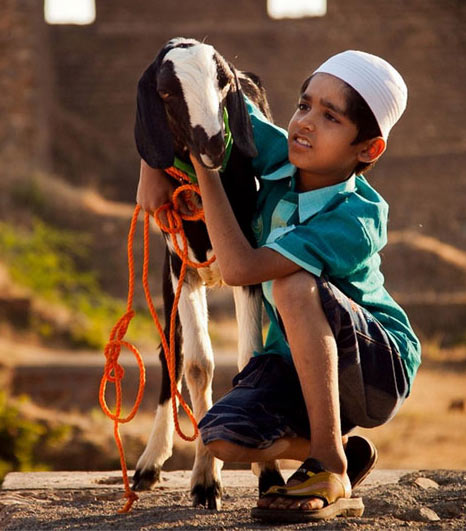
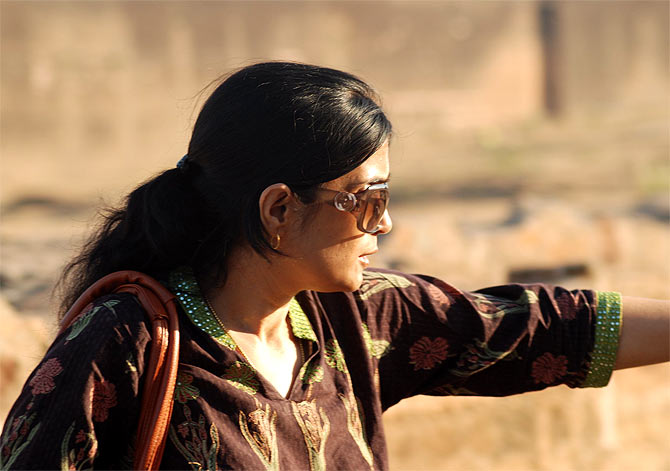
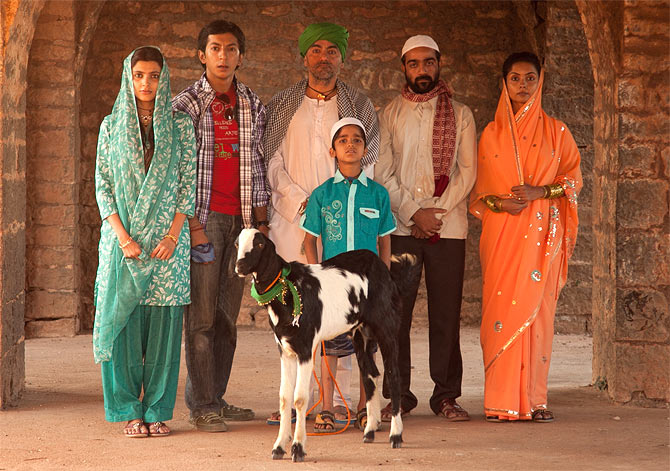
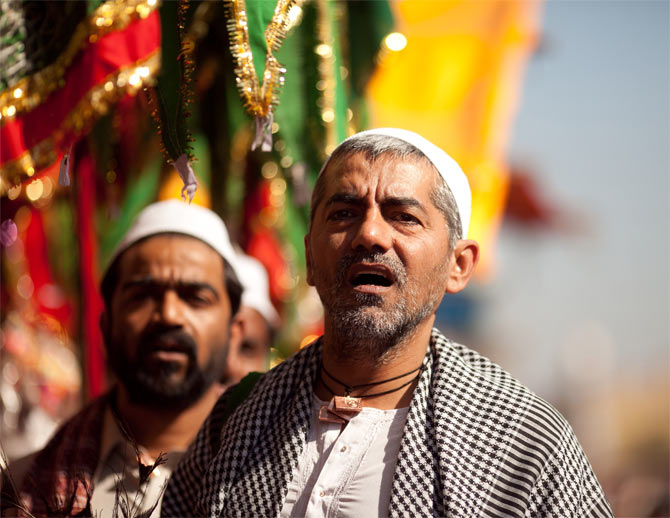
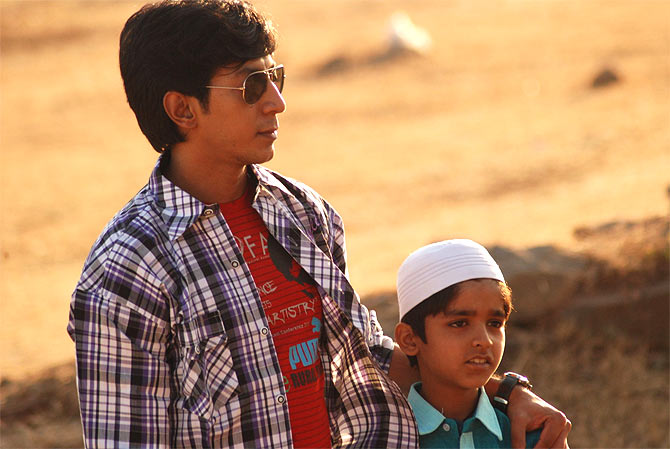
Comment
article